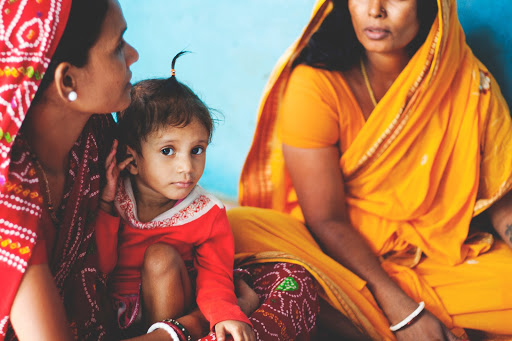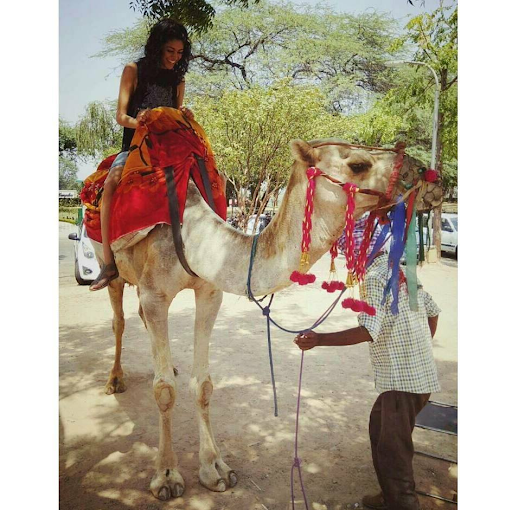
Ever since Monica Shandal was in junior high, she had a strong desire to change the world for the better. She initially wanted to pursue a career in environmental justice, but she let it go when she realized it was a bit retrospective- helping people after the fact. Instead, Monica became drawn to policy work, as it addresses issues in more if a preemptive manner.
She had previously worked in Australia doing policy work, but she couldn't help but feel that she could be making a bigger change elsewhere in the world.
This line of thinking is what inspired her to go to India.
In 2017, she landed an opportunity to intern with the International Rice Research Institute and see firsthand the dynamics that existed in Rural India. Monica, an Indo-Canadian woman, felt that the women of rural India were who she could help the most with what she had to offer. Monica successfully applied for the Edmonton Consular Ball Scholarship, which helped to fund her trip.

When Monica told her family and friends that she wanted to go to India, they didn't know how to respond. They were worried if she would be safe- India is a country that is vastly different from Canada, both social and structural norms. Many of her friends believed it was a place where "bad things may happen." They didn't believe it would be a safe place for a young woman to travel to alone.
But Monica ended up being blown away by the kindness of the people she met in India. She recalls that people who didn't even speak the same language as her would readily invite her into their homes for lunch.
"They really just want to help you and make sure you're okay. They're so inviting and more helpful than I could have ever anticipated. They are so interested in what you have to say or offer, and they just wanted to help you, talk to you."

In one situation that Monica remembers, she wanted to visit a specific temple in Delhi, but she couldn't find it. Her rickshaw driver drove her around for nearly an hour, and even after it became apparent that they were lost, he still went the extra mile to help her. He dropped her off somewhere safe, despite it being in an area of the city he didn't operate in. He also told her, "Don't be afraid to ask for me," in case something went wrong and she needed another driver.
Another example of the warmth Monica encountered was the relationship she fostered with her coworker, who let Monica stay with her in her home after Monica was unable to stay in her hotel room. She helped Monica adjust to everyday life in India- things like helping her open a bank account, or getting groceries.
"She was always there for me," Monica recalls, "If I ever had questions, she would help me, or reassure me". The two ended up becoming very close, and Monica now thinks of her as "a sister".

Monica ended up getting more from her internship with IRRI than she had anticipated. She ended up using their data for her master's thesis, and they have done much to support her. They have helped in funding her fieldwork by paying for her flights, accommodations, even helping her apply for external scholarships.
Monica has since gone back to India multiple times for her work, and she is so grateful for all she has gained through her time with them. "[My internship with IRRI] opened up a whole network of professionals, and such good connections."
When Monica reflects on how she has grown from her time in India, she realizes that her "empathy has skyrocketed". One example is that she has was inspired to walk around and buy food and water for people that didn't have the means do so for themselves.
"I saw inequality directly, realized how well I was doing, and that I should be doing more to give back". She recalls one time where she bought some children lunch, and she saw them a week later. They recognized her and came up to her to thank her.
"The gratitude on people's faces is enough," she says, with a smile.
"I would have never developed that part of myself anywhere else."